ARTICLE AD BOX

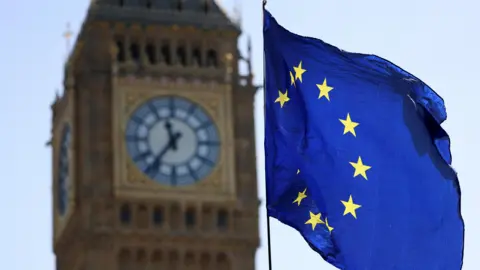 EPA
EPA
"It's a cold world out there. We need to huddle together."
So said a European Union diplomat to me, confident of the magnetising effect on both the EU and the UK of the world having changed so significantly since the original Brexit deal.
Both sides privately talk up what is seen as the remorseless logic of closer defence and security ties.
The British government, in trying to ensure it has the political space to justify a (partial) re-writing or tweaking of the relationship, talks of now being in "the mid 2020s" as a reminder of the time that has elapsed, and events that have unfolded, since all the noise, negotiations, anger and elections that leaving the EU provoked.
Without question, Russia's full scale invasion of Ukraine and President Trump's overt reluctance to subsidise European security as he sees it have changed the conversation about defence.
Whatever your views about Brexit, a word of warning: the next 24 hours or so might be triggering if the kind of headlines and phrases that made the news for years on end became mildly off-putting roughly between 2016 and 2020.
There will be talk of haggling, of fish, of sovereignty, of cash and of courts. And we have already had senior figures on both sides talking about last-minute tweaks and that old favourite in the phraseology of EU negotiations: "Nothing is agreed until everything is agreed."
It feels like a landmark moment. After the years of Brexit noise, there were the years of (relative) Brexit silence. Now, it is returning to the news again.
What will change is actually relatively narrowly defined – the government has promised it won't take the UK back into three of the biggest pillars of the EU: its customs union, single market or the freedom of movement of people around the bloc.
But that much accepted, there is plenty that is being talked about.
Over the weekend, the negotiations rumbled on, led on the UK side by Nick Thomas Symonds, the minister in charge of the UK's relations with the EU.
Alongside him has been Michael Ellam, who returned to government in January to lea, at an officials-level, the negotiations with the EU. Ellam was previously director of communications in Downing Street when Gordon Brown was prime minister.
In the last hours, the talks took place virtually.
At various points in recent months they have happened face to face.
So what can, or should, we expect?
The Labour manifesto from last year's general election is worth a look as both both a guide to what the government wants, and a tool to scrutinise what they manage to pull off.
Here is what it says:
On page 117, the party wrote that it wanted "an improved and ambitious relationship with the European Union" which would "deepen ties."
On the following page, it promises to "improve the UK's trade and investment relationship with the European Union" and remove "unnecessary barriers to trade."
It adds that they want a "veterinary agreement," which is diplomatic-speak for making it easier to move food around, an arrangement to make it easier for touring artists such as bands to travel, the mutual recognition of professional qualifications and a security pact.
So, when we get the details, we can measure what has already been achieved, where there is broad agreement but not yet agreement on the specifics, where there is no agreement at all and where things have been signed up to that were not in the manifesto.
We can expect both sides to herald the importance of improved defence and security cooperation.
Ministers have also been talking up the removal of queues for Brits visiting EU countries.
What does the EU want?
It is very keen on a youth mobility scheme, allowing young people from the UK and EU to travel more easily.
After months of denying it had any plans for such a scheme, the government has in recent weeks been acknowledging publicly that one is being discussed and has started to sell what they see as its merits.
The government is keenly aware that some will see it as freedom of movement by the back door.
Let's see precisely what, if any, details have been agreed and what the scheme is called.

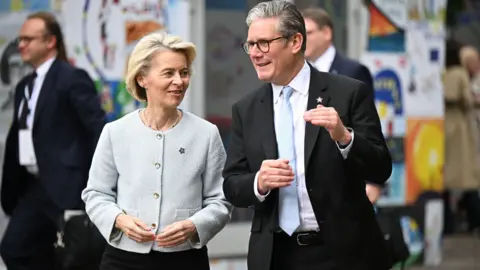 PA Media
PA Media
The prime minister is expected to welcome European Commission President Ursula von der Leyen to London on Monday.
Then there is fish, never far away when the EU negotiates.
And then two Brexit perennials: cash and courts.
What is the UK willing to pay to access various EU schemes and what role will the European Union's court have in settling any disputes?
Some of those who long argued for Brexit and would now see themselves as custodians of the deal Boris Johnson negotiated worry that the government will sign up to what is known as "dynamic alignment" - an acceptance not just of EU rules now in a certain area, but an agreement to accept them if they change in the future.
They would see this as a fundamental dilution of a key tenet of Brexit and, critics point out, it was not in the Labour manifesto.
So again, detail will be key here when we see what has been agreed.
Sir Keir Starmer will argue his manifesto and his majority gives him a mandate for closer ties and can point to opinion polls that also suggest support for negotiating a closer relationship.
He will argue that a deal with the EU, alongside the ones with India and the United States announced this month, show a willingness to both leverage the freedoms of Brexit while getting what he will see as a better relationship with Brussels.
But it is also true that he risks inflaming all those old Brexit rows, angering Brexiteers and doing little to pacify those who have long hated Brexit.

 7 hours ago
3
7 hours ago
3
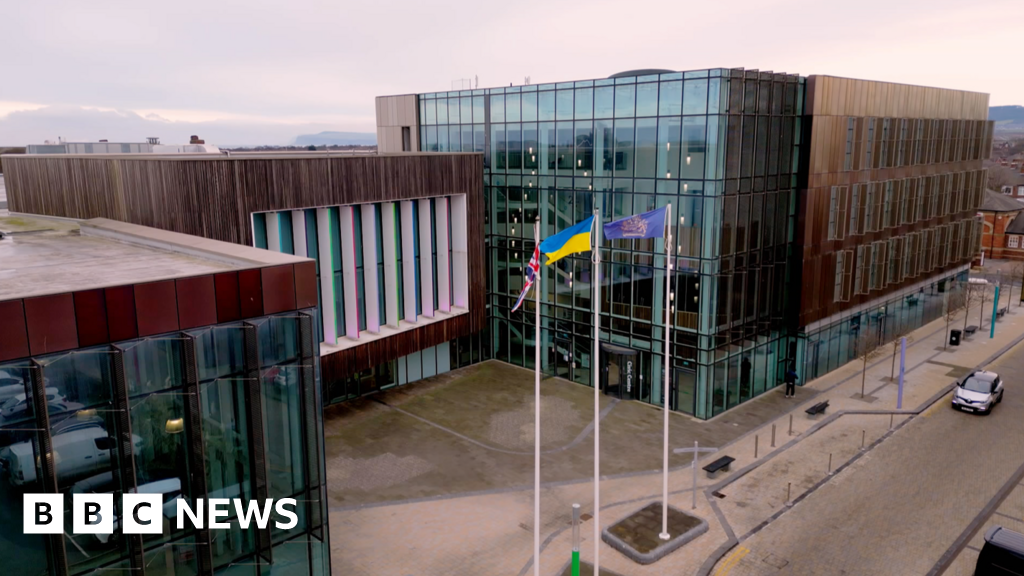
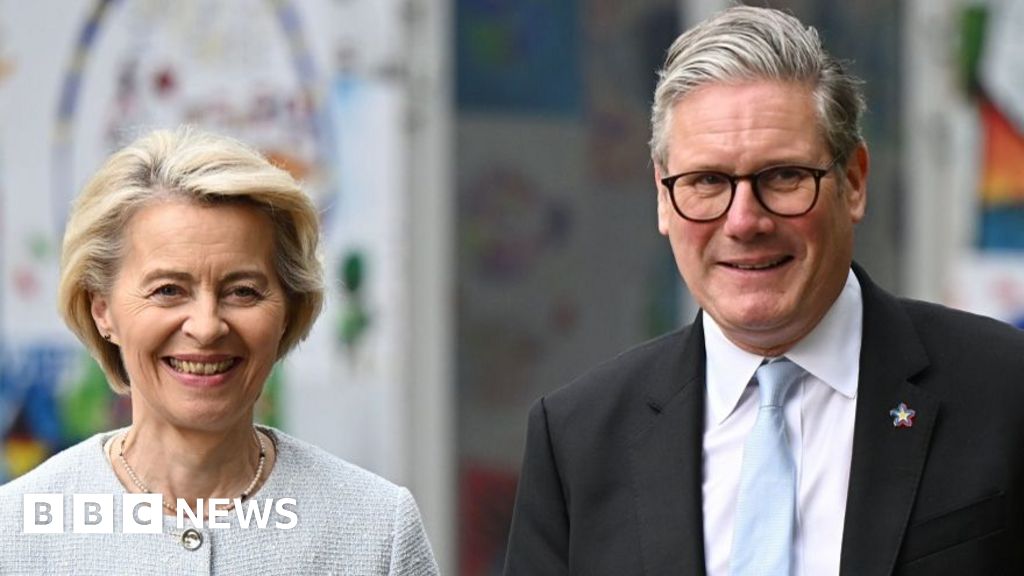
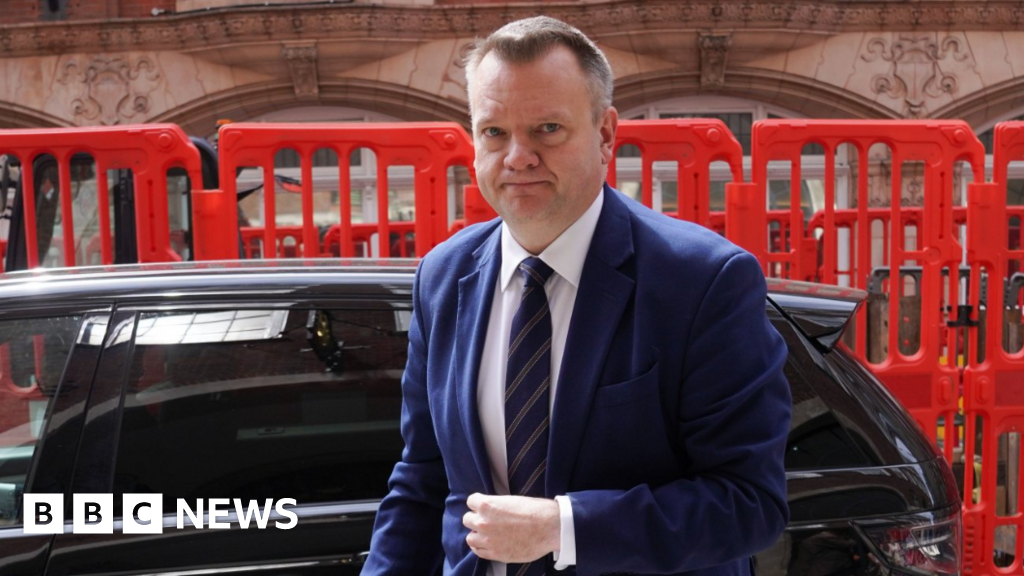





 English (US) ·
English (US) ·